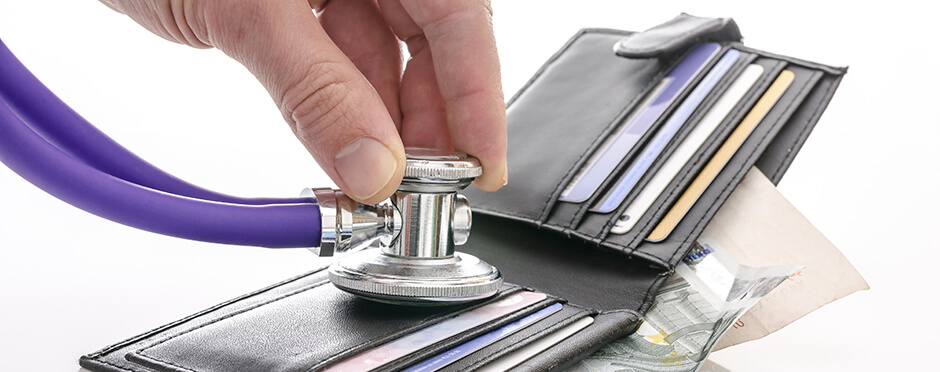
Financial well-being December 2, 2015 By
Does your wallet look like a mall directory with all the department store credit cards? If so, you might want to rethink your approach to credit and your budget. While you might think you’re getting great bargains by using these cards for your purchases, more often than not you’re hurting your financial position and credit score.
The first and main reason retail cards should raise a red flag is because the interest rates are typically much higher than regular credit cards. We’re talking 20–30 percent for a credit purchase. This goes up the very first time you have a late payment, too. Additionally, your credit score is affected every time you reach a certain percentage of your credit limit on any credit card. For example, if your credit limit is $500, the day your balance hits $250, or 50 percent of your limit, your credit score is negatively affected by a few points. And because retail credit cards have lower limits, you will reach this threshold quicker than you would otherwise, which could answer the common question: “What happened to my credit score?”
An obvious reason to avoid these types of cards is that the usage is limited to the one store. This limit deems your retail card useless if you need credit for those new tires or if you want to book plane tickets for a vacation. This might not be a big deal to you, but when you compare the benefits of a retail credit card to those of a wide use credit card, you will quickly find that benefits are limited. Certain benefits may entice you, such as cardholder bonus discount days for an extra 5–10 percent off. But if you look closely, you’ll find these days take place on the store’s slower days, such as Tuesday or Wednesday. Not only that, but you will be incentivized to spend more with frequent mailers containing special cardholder coupons and cardholder shopping hours. These ploys do nothing more than encourage more debt. Try to avoid these traps, because you will likely be spending more than you planned on, which could point your financial situation down a bad path.
While there are perks to certain store cards, it is best to opt for one general credit card that gives you a broader use, higher limit, lower rate, and perks such as cash back or points. These are better for building your credit or for emergency use. Some stores even offer debit cards, which have the same benefits as a credit card but tie directly to your bank account so you can be more aware of your spending. They also help you avoid the trap of debt and eliminate the risk of your credit score being affected.
You should give thought to any major financial decision, especially one that will have a 7-year implication on your financial future. It is better to discuss these decisions with a trusted advisor, such as your banker or your financial planner, and make an educated decision regarding your credit needs.




